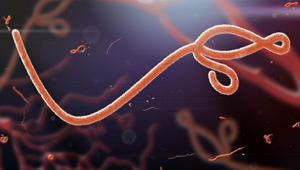A body has tested positive for the virus after the World Health Organisation announced yesterday that 42 days had passed in Liberia since the last known Ebola patient tested negative, marking the end of transmission in the country and the first time in the two years since the start of the epidemic that Liberia, Sierra Leone and Guinea were all considered Ebola-free.
This had been hailed a significant milestone and “monumental achievement” by the WHO and others. However, just hours after the announcement, the health ministry in Sierra Leone confirmed the positive test for the virus in the north of the country, near the Guinean border.
Late on Thursday, a spokesperson for the health ministry explained that a female student had been taken ill in Bamoi Luma and died soon after. Two tests carried out by UK health organisation Public Health England confirmed she had died from Ebola.
Organisations including the WHO, the World Bank, Médecins Sans Frontiers had warned that the risk of small flare-ups of the virus remained and called for vigilance.
Liberia, for example, was first declared Ebola free in May, but the virus, which in some cases can linger in survivors for up to a year, has since remerged twice in the country. The chance of the virus resurfacing is gradually decreasing as it clears from the survivor population.
Guinea, Sierra Leone and Liberia suffered the heaviest toll from the epidemic, which began in 2013. A total of 11,300 people lost their lives and more than 28,600 were infected.
The WHO confirmed that efforts are underway to ensure that all three countries have increased capacity to detect and manage cases of Ebola.
Bruce Aylard, the organisation’s special representative for the Ebola response, said yesterday a “massive effort” is underway to ensure that the prevention, surveillance and response capacity in all three countries is robust by the end of March.
“We are now at a critical period in the Ebola epidemic as we move from managing cases and patients to managing the residual risk of new infections,” he said.












